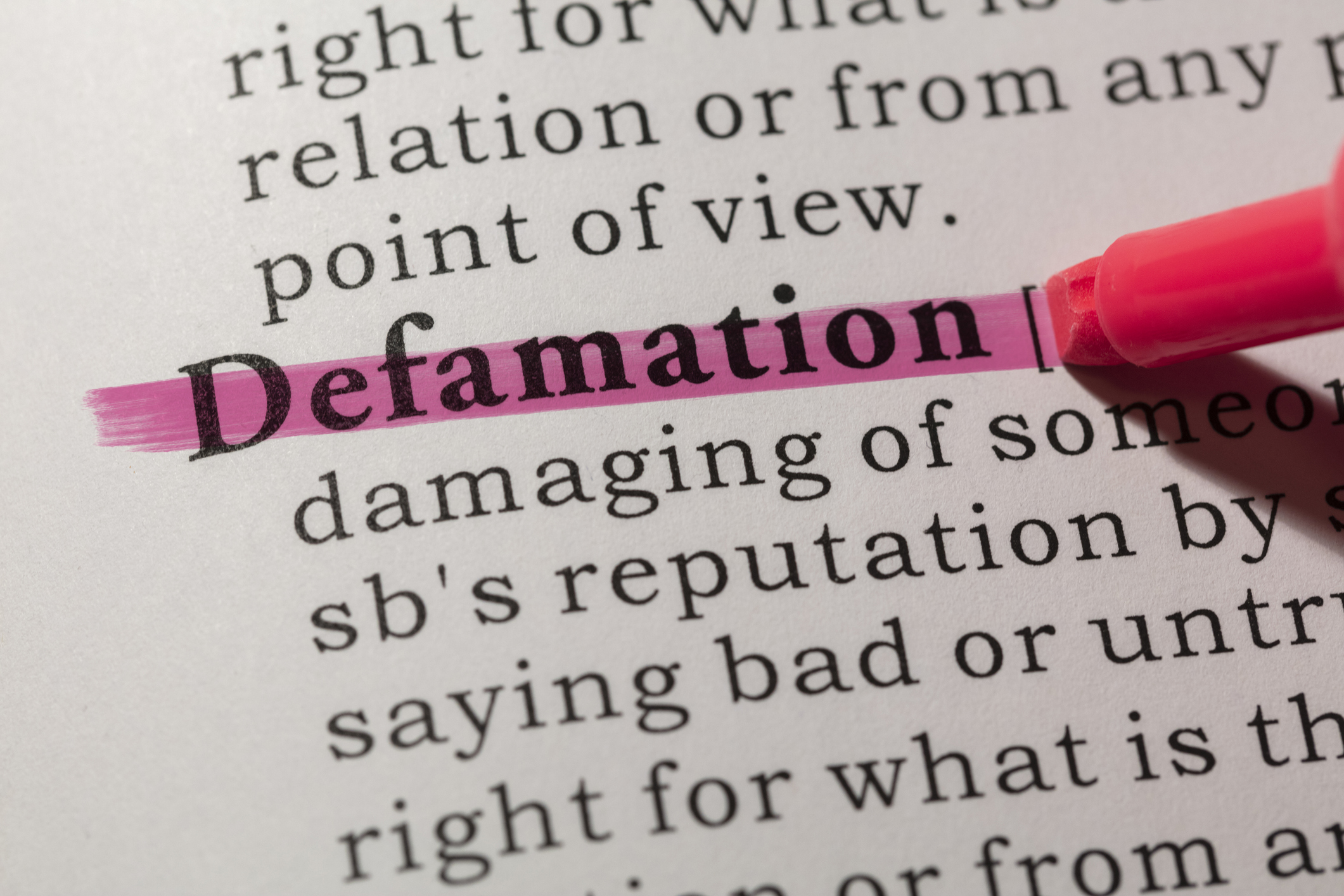Recent Wins for Plaintiffs
Defamation is considered a notoriously difficult claim to make, but recent high-profile cases have nonetheless resulted in major victories for plaintiffs. Dominion Voting Systems obtained a settlement of over three quarters of a billion dollars in its recent case against Fox News relating to false statements made about the company in reporting on the 2020 election. A New York jury in E. Jean Caroll’s civil sexual abuse and defamation case against Donald Trump recently determined that the former president defamed her by calling her a liar.
Why Is Defamation So Hard to Prove?
What makes defamation claims so hard to win and why did these plaintiffs nonetheless prevail? The First Amendment protects not only true statements, but also a great deal of wrong, hurtful, or embarrassing speech. Opinions (“I think this person is a jerk”), sarcasm, jokes, and hyperbole, no matter how offensive, are not defamation under American law. Only statements that purport to be factual but are actually false, can be the basis of a defamation claim.
Because of the robust protections of the First Amendment, defamation is much harder to prove in the United States than in other countries, even other western common law jurisdictions like the United Kingdom. This is particularly true where the person who was allegedly defamed is a public figure. In the United States, a plaintiff who is a private figure needs only to prove that the defendant was negligent in making defamatory statements about the plaintiff (i.e., that the defendant could have determined that the statement was false if he had used due care in investigating the statement before making it). But in cases where the plaintiff is a public figure (a celebrity, a politician, or a public employee acting in the course of their employment) or the plaintiff has injected themselves into a matter of public concern, that plaintiff must prove that the harmful statements made about them were not only false but made with “actual malice.”
What “Actual Malice” really means
So, what is actual malice? Does it mean that the defendant hates the plaintiff? That the defendant meant to visit some particular harm on the plaintiff?
No.
“Actual malice” does not refer to any sort of ill will the defendant bears toward the plaintiff. Instead, “actual malice” refers to whether the defendant had reason to believe what he said was true. When the defendant knows his statement is false or when the defendant makes the statement with “reckless disregard” for whether the statement is true, the defendant has acted with “actual malice.”
And what does “reckless disregard” mean? It’s more than making a mistake or acting negligently. “Reckless disregard” requires the defendant consciously ignore the significant likelihood that the statement he is making is false.
Even when the public figure plaintiff can allege the defendant acted with actual malice (he either knew the statement was false, or acted with conscious disregard to its falsity), the plaintiff has an additional burden under U.S. law. The plaintiff has to prove “actual malice” through a heightened “clear and convincing evidence” standard. What does that mean? It’s a much higher standard than what normally governs civil trials – preponderance of the evidence, which just asks if something is more likely true or not (think a little more than 50%). Clear and convincing evidence, on the other hand is “overwhelming.” It’s not as high as the standard in criminal cases – “beyond a reasonable doubt.” Instead, it lies in between the typical civil and criminal standards.
Only when a plaintiff can demonstrate “actual malice” to this heightened “clear and convincing evidence” standard, can she prevail in her case.
Challenges for Both Defendants and Plaintiffs in Defamation Cases
In the era of social media, defamatory statements can quickly and severely damage the target’s reputation. Hastily made and poorly vetted statements can trigger serious liability, which the speaker may not realize. Additionally, statements that the speaker intended to be jokes or that weren’t meant to be taken literally may still be defamatory, based on how a reasonable listener would interpret them.
But it’s not just defendants that have to be cautious about defamation claims. An overreaching plaintiff who sues a defendant over First Amendment protected speech runs the risk of losing early and owing attorneys’ fees to the defendant through a defendant’s Anti-SLAPP motion. An Anti-SLAPP motion can immediately derail a plaintiff’s defamation claim and result in a costly judgment to pay the defendant’s attorneys’ fees. Successfully bringing a defamation claim thus requires careful and diligent preparation to prevent the suit from ending in an expensive defeat.
Whether you have had your reputation unfairly attacked by someone else’s false statements or you’ve been accused of defamation, you need counsel experienced in handling defamation claims to build the strongest possible case. Keller/Anderle has successfully handled defamation, false light, and trade libel claims, for both plaintiffs and defendants, as well as Anti-SLAPP motions. Our trial attorneys’ command of the complex First Amendment issues presented by these cases allow us to achieve the best possible results for our clients. We are the zealous advocates who will protect your reputation.

